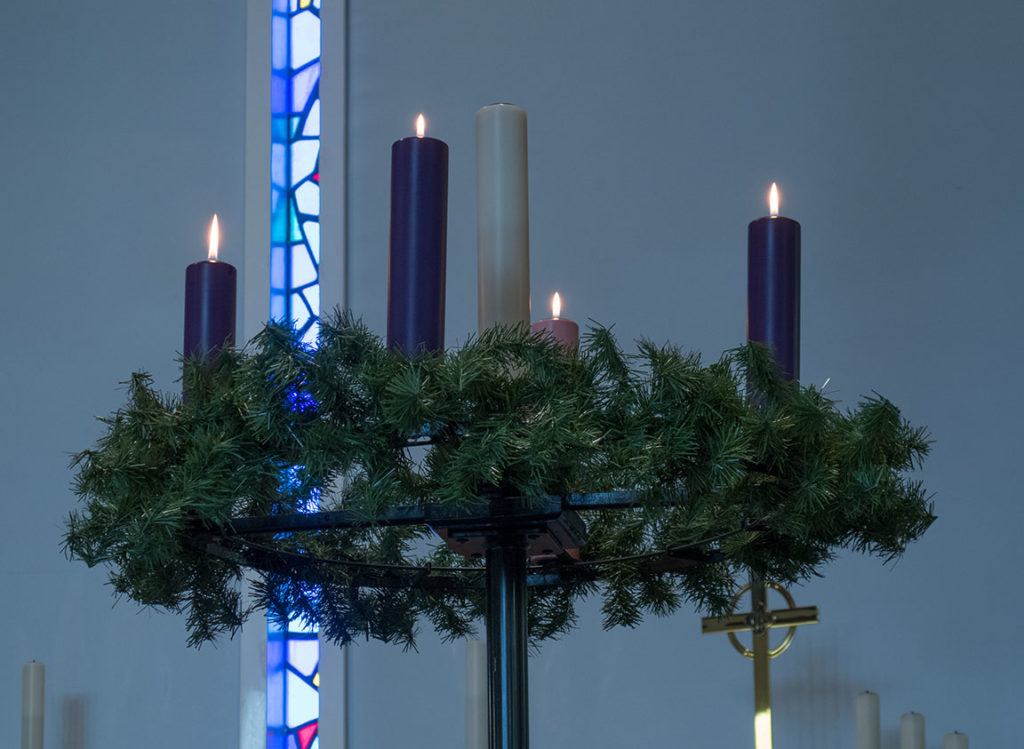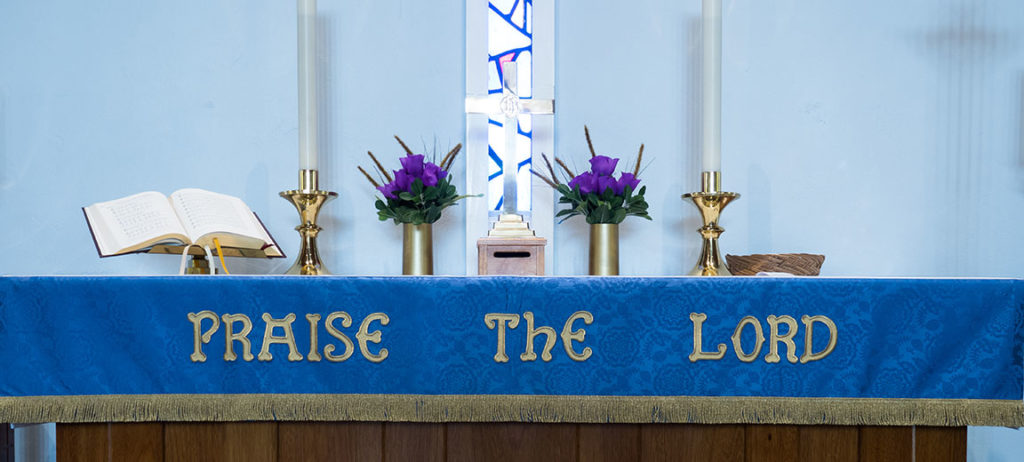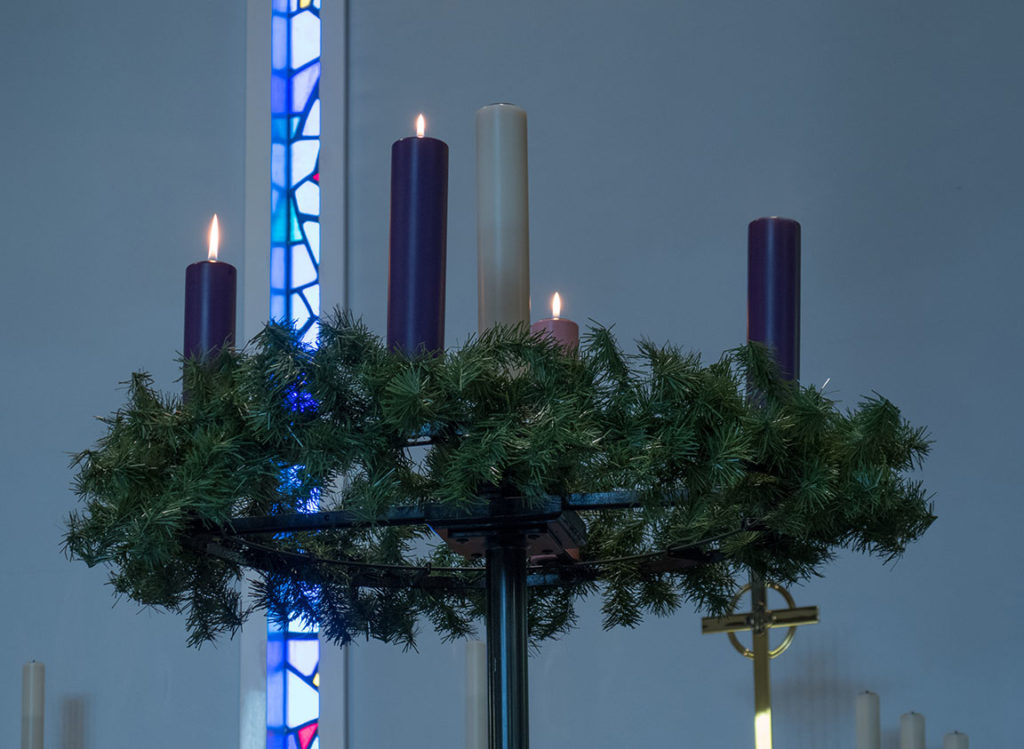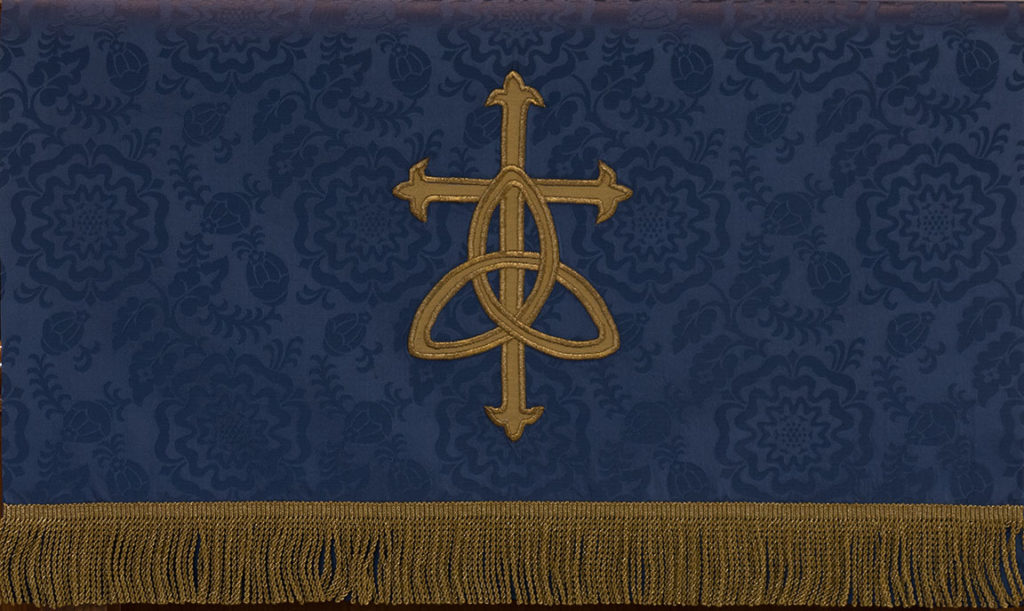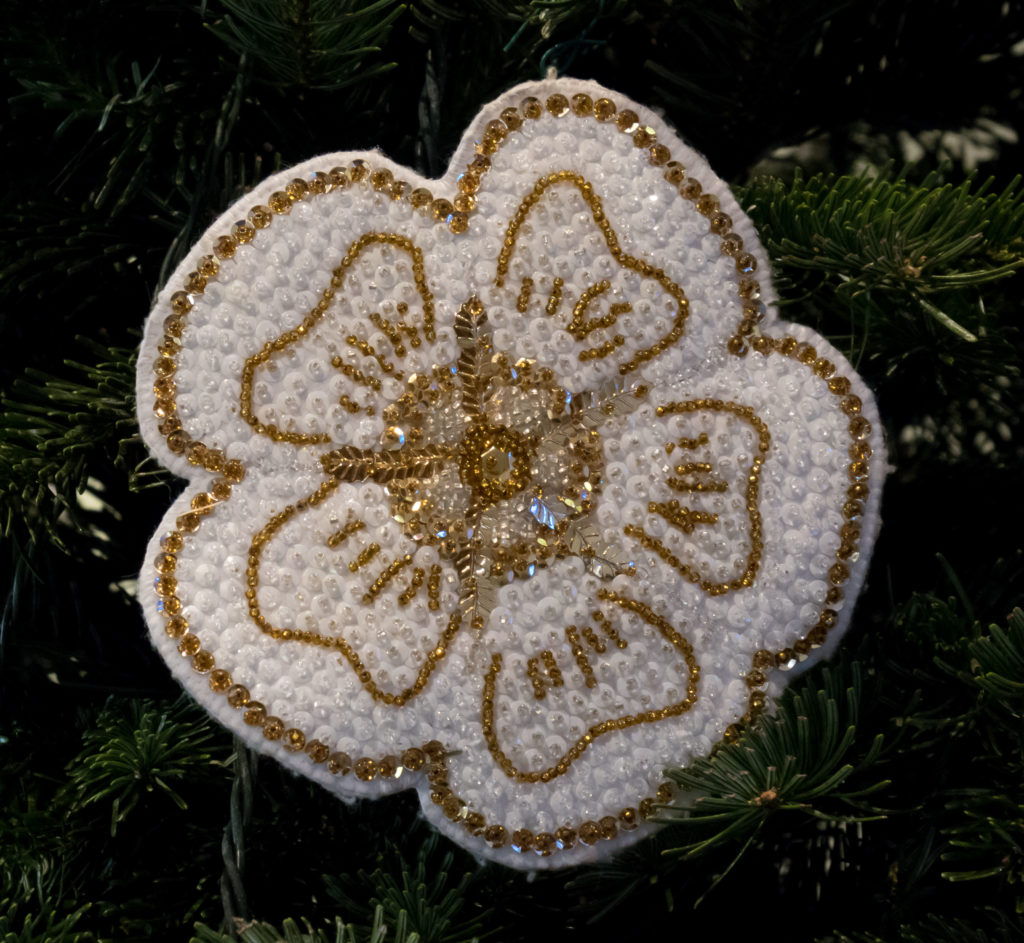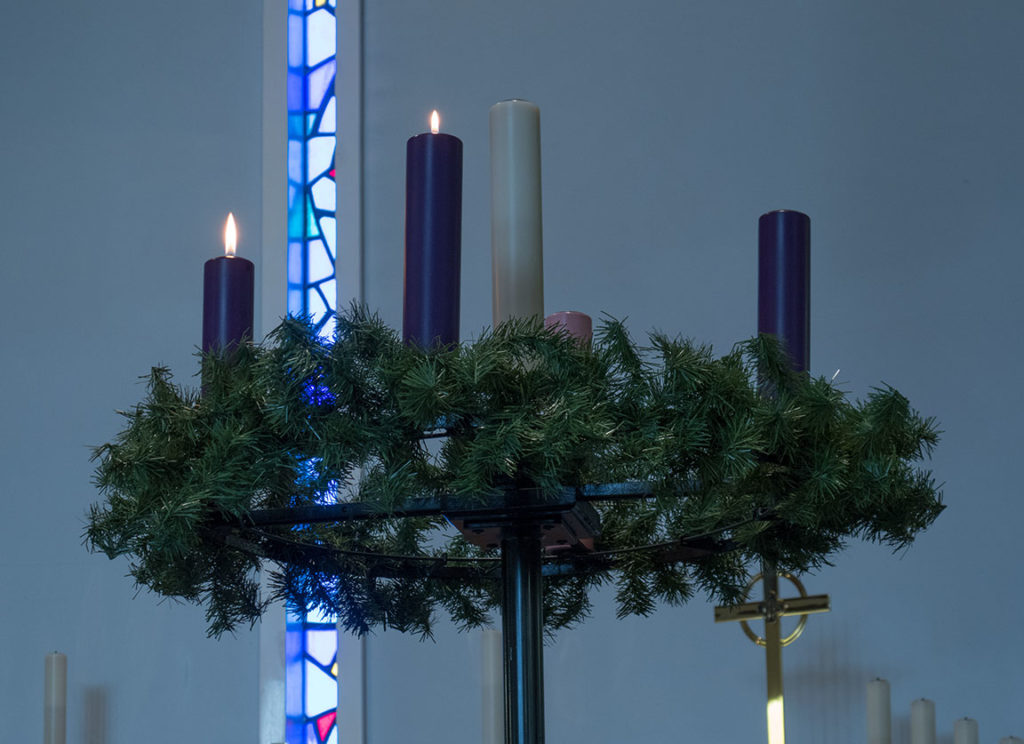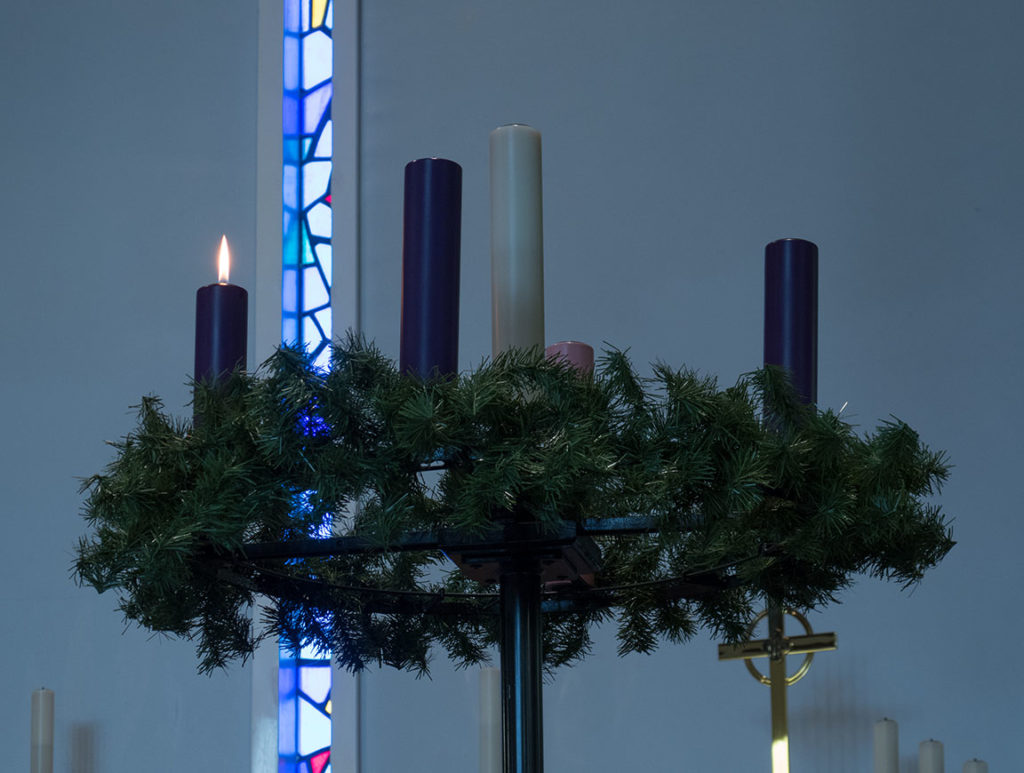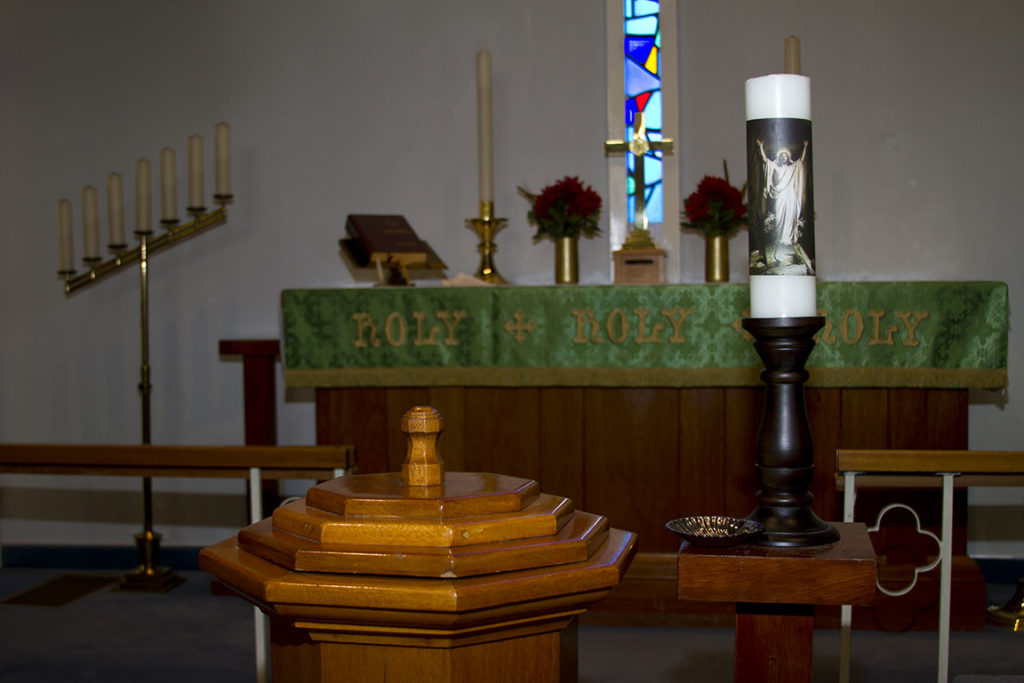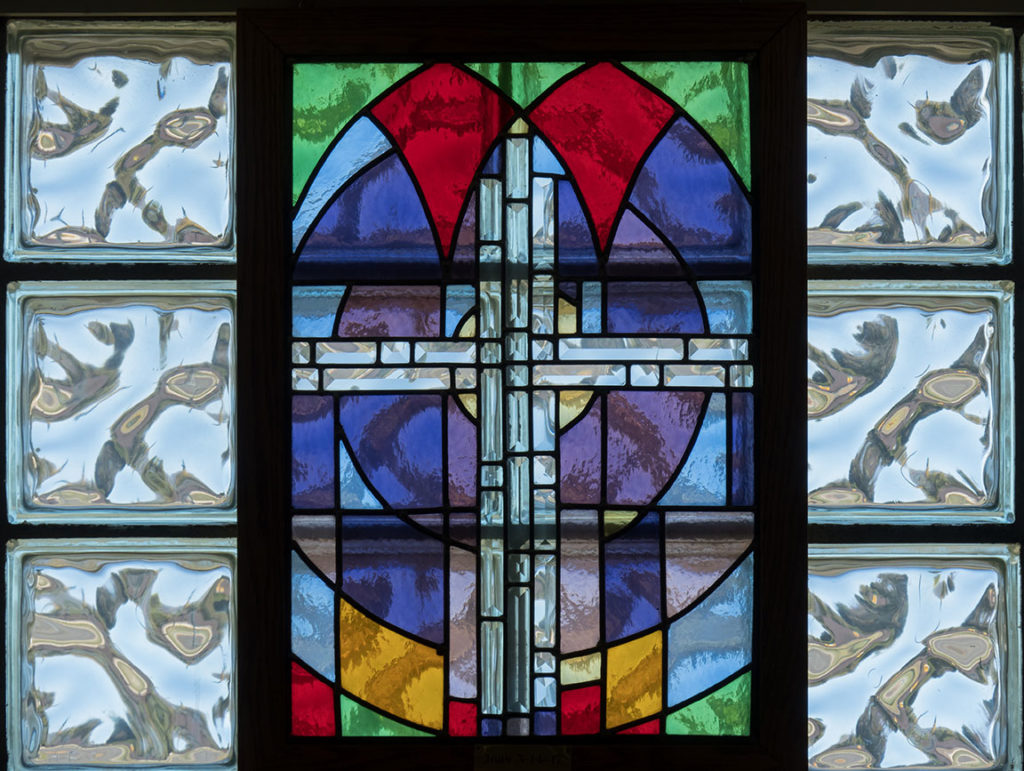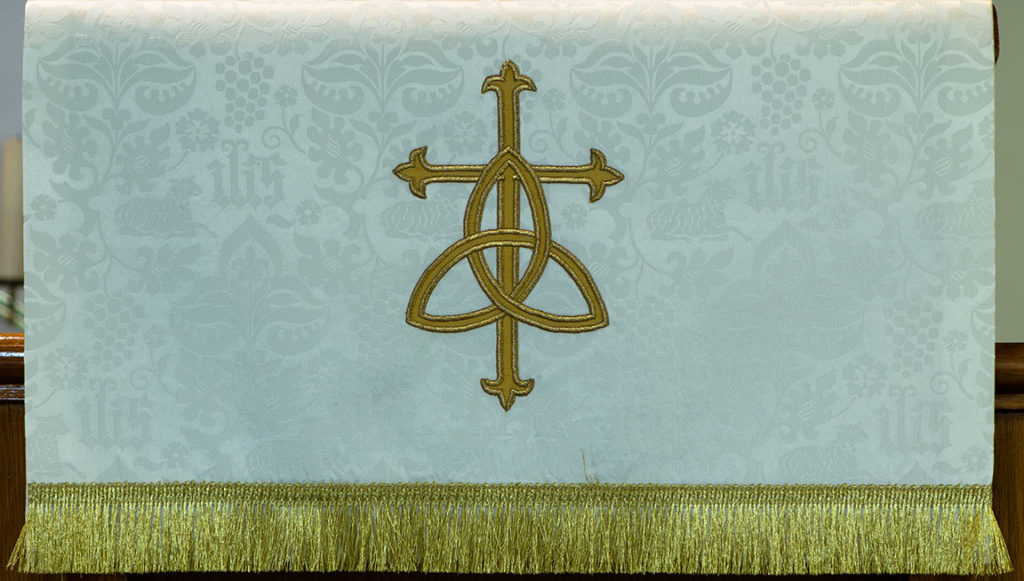Rev’d Mark B. Stirdivant, Good Shepherd Lutheran Church, Yucaipa, California
✝ sdg ✝

Hibiscus, sunlit
As the sun set in Eden’s garden on the day that changed the world, Adam and Eve were afraid. God came to earth perhaps amidst the angels’ heavenly singing and the joyful response of nature to her Creator. (Job 38:7) But our first parents still had much to fear, for they had just rebelled against their Lord. They had eaten from the tree of knowledge of good and evil, counter to the Creator’s explicit warning that on the day they eat that fruit, they would die. God had meant to create so that He would bless; now, due to sin, which has no place whatsoever in His presence, He resigned Himself to curse as He had threatened. Two curses were uttered: the first one was against the evil serpent who deceived Adam and Eve, declaring to Satan that the woman’s Seed would crush his head; and the second curse was upon the ground, reminding Adam, indeed, telling all of humankind that we were responsible for plunging the world into the night of sin.
And so, night did fall on God’s green garden paradise of earth. It was a spiritual night that showed little promise of coming to an end. The sunrise and warmth of the heavenly Father’s shining face was veiled in the blackness of evil. Mankind has since that fateful day devised new and even more hideous ways to propagate the curse of sin, making society darker and more devoid of Divine Light than ever before. You could almost see the tear in the eye of the Biblical author of Judges when he wrote those last words of the book, “In those days there was no king in Israel. Everyone did what was right in his own eyes.” (Judges 21:25) God’s people were alone, in the dark, the promise forgotten, the curse remaining. Ever since the sun set in Eden, it had been nightfall, with people even to this very day walking about in their spiritual lives with arms out, crashing, stumbling without regard to the light of God’s Word, destroying one another, as well as themselves.
You may be painfully aware of this curse of darkness yourself. You may have been alienated from the rest of your family. You could have lost your job or your means of supporting yourself has otherwise been cut off or cut too short. You could have ended the school term with a load of guilt over not doing the assignments and all the studying that you should have. Parents turned against children, workers turned against bosses, inner-cities turned against suburbs, and sadly, there’s even church turned against church at times. No amount of “Christmas spirit” can shine enough light into this darkness. No parties, decorated trees, stuffed stockings, holiday cheer, donations to the bell-ringers’ buckets, or even night-time visits with three ghosts can reverse the curse. Our sinful world owns up to no king, everyone does that which is right in his own eyes. Your sinful nature and mine are quite at home in the darkness, yet we’re never content with the sins we have, as we’re always craving after more. And so darkness continues for you, inspiring fear in a heart that was instead created to love. It’s something you can feel deep within, and the curse seems to get stronger, and the only thing you think you can do is ignore it, go about your life, look out for number one, and deal with all this spiritual stuff later.
That’s what the shepherds were hoping to do. The sun had already long set, and they were settling in for guarding their flocks during the several night watches in which their familiar fields were always getting plunged into disorienting darkness. But it would not be business as usual for these animal-watchmen on this night. Even though it was the middle of the night, they would witness the dawning of another day, a day that would change the whole world’s history yet again. The shocking appearance of the angel shining with the Glory of the Lord not only gave light to their immediate surroundings, brighter than it would be at noon, but that heavenly appearance also shone God’s holy Light into the darkness of this world’s sinful nightfall.
Just like their ancestors Adam and Eve, the shepherds were afraid on that day that changed the world. The appearance of the angel struck a massive fear into their hearts that the King James Version describes for us as “sore afraid”–you could say they were afflicted with a fear so great that it hurt. But to counter such great fear, the angel messenger greets them with the all-important and often-recurring opening words, Do not be afraid! When the words of God’s messenger say, do not be afraid, then He causes that very thing to happen. Only the powerful Word of God Himself could turn their hearts to hear the Good News. And the Good news is this: Today, on this day above all days, a Savior is born, a Light to shine in your darkness, a Light that will not be overcome by the darkness you and I inflict on this world. Angels sing on earth once again, for God has come to walk among His people in the midst of His creation, this time not merely strolling one evening through the Garden of Eden, but rather walking about in real human flesh. In fact, Jesus has now lived in human flesh as our Lord and Savior for over 2017 years. The incarnation, that is, the coming-in-flesh of Jesus is the good news of great joy that is announced and celebrated by the singing angels. With all of the bad news that assaults us in abundance, He is the Light that our dark world needs.
And so it is also for you, the Good News of great joy is precisely the news of your forgiveness, the news of new life in the midst of death. In a magnificent turn of events, the first curse that was threatened against Satan, the prophecy that Jesus would come to crush his serpent-head, will be fulfilled in the cross. The Baby Boy born at Christmas would on the next great day in history, that being Good Friday, be put to death, with darkness enshrouding the earth, only to arise with the sun on the first Easter morning. What is amazing about all this is that once the first curse is carried out to completion, the second curse that was cast on the ground, as far as, far as that curse is found in this world, it will be replaced with God’s flowing blessings instead. Joy to the World, indeed! If you mourn, if you are sore afraid, if you are stricken with any of sin’s painful fallout, you often find it is most difficult to deal with it at the holidays. Yet, even in the midst of deepest darkness, when even the days themselves lack light the most, the true Light of Christ shines the greatest in the Good News of great joy to dispel what afflicts you in your life with pain and fear.
The sign for the shepherds was that they would find a wrapped-up baby in a manger. Notice that the angels did not need to command the shepherds explicitly: “Stop what you’re doing; go to Bethlehem, do not pass ‘Go.'” All they needed to do was reveal to them the sign. For it is the sign alone that gives them the permission, the invitation, and even the inner compulsion, to go find the Christ Child. How could they possibly stay out there in the fields after all this has been told to them? Here is the very simple sign by which you will behold the world’s Savior—wouldn’t you go to the utmost limits to search for that sign? Wouldn’t you make arrangements, even at great cost, to visit with Jesus if you had the opportunity? The shepherds came with haste, the Scripture says, teaching us well by their example.
Simple ordinary signs of Jesus the Christ Child will point you to Him. Tomorrow when we celebrate the Divine Service, the Holy Body and Blood sitting front-and-center on the altar will take the place of the baby lying in the manger. The flesh that was for a while limited by time and space is placed into the manger of your own hands and fed into your own mouths. May the appearance of this ordinary sign be your encouragement, invitation and inner compulsion to receive the grace of His forgiveness and life. Do not forgo this great joy that is for all people. If you are not yet a communicant united with our confession of the true faith as laid out for us in Scripture, I urge you to learn the faith and confess it as your own, so that you would not remain deprived of this wondrous Christmas gift of all gifts.
Refuse the darkness that creeps in to kill this joy and be welcomed by our Savior and His Bride, the Church into His marvelous light! Rejoice in His coming again for you to see fully the day that is about to dawn upon this dark world. Be confident, knowing that the curse that darkens your life and our world has been lifted by our Savior, Christ the Lord. There is no curse now, only blessing. Let your King turn away the sadness, fear and lack of contentment that prey on you. Bask in the warmth of your Heavenly Father’s love, for His face is shining upon you, the face that was revealed to the world first at night in the smile of a baby boy with a virgin mother.
In the Name of the Father and of the ✝ Son and of the Holy Spirit.
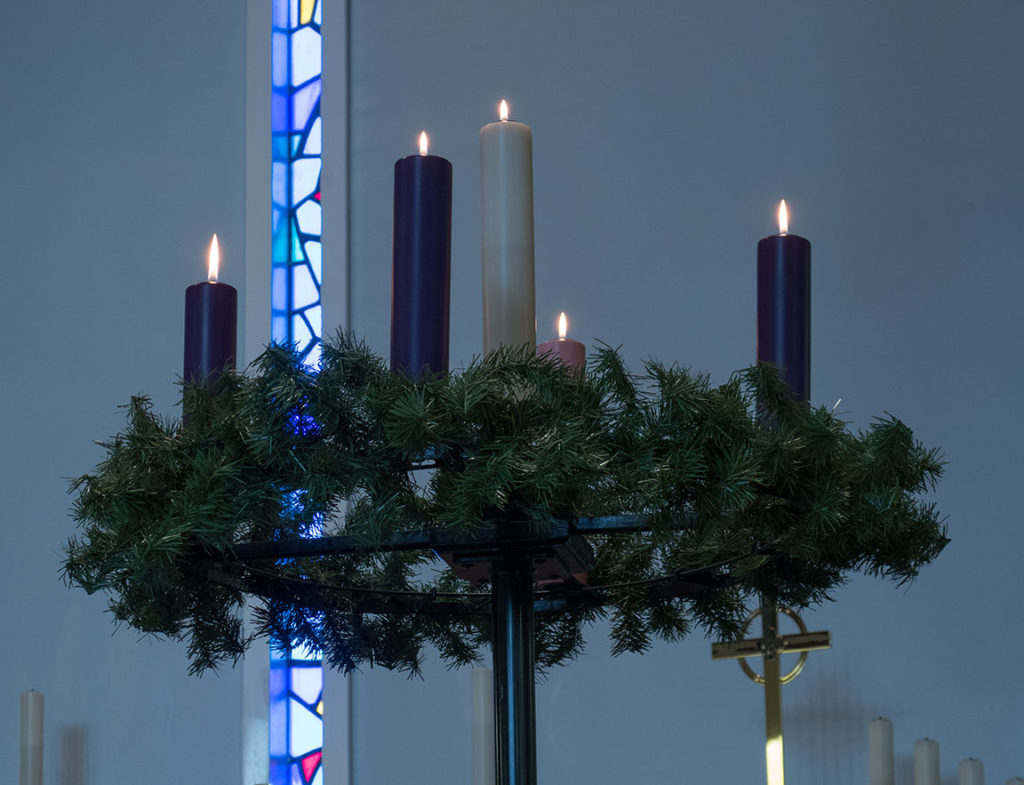
Advent Wreath, 5 candles lit

